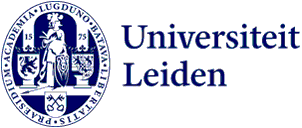Lawyers' risks: crown witness cases and extra secure communication tools
How can we guarantee the safety of the crown witness scheme for both crown witnesses and lawyers? How can we ensure that online conversations between lawyers and their clients remain confidential? And what are the risks of extra secure communication tools?
On the instructions of the Netherlands Bar Association (NOvA), a research team from the Criminal Law Department conducted two studies: one on the impact of expanding the crown witness scheme on the lawyers’ safety and the other on lawyers’ use of extra secure communication tools. For both studies, the team of academics interviewed lawyers, former and current deans of Bar Associations and staff at the Dutch Public Prosecution Service and Netherlands Forensic Institute. They also explored the situation in countries including Italy, France and the US. The studies were completed in October 2023 and the study on extra secure communication tools was published (in Dutch) on 4 April 2024.
Crown witness safety
The crown witness study has shown that assisting crown witnesses can have a major impact on lawyers’ safety and how they carry out their work. That impact first came to light during the Marengo case, with the shocking murders of Reduan B. (the brother of a key witness), lawyer Derk Wiersum and confidential advisor Peter R. de Vries. Crown lawyers and their immediate contacts have been subject to threats and drastic security measures in other cases as well. As a result, the study has shown that only a limited number of lawyers are currently willing to assist crown witnesses.
Partly following input from other countries, the researchers therefore recommend only using crown witnesses when the safety of all involved parties – including lawyers assisting crown witnesses – can be adequately guaranteed. The researchers argue that this safeguard is essential before the crown witness scheme can be expanded.
Op dit moment is de kroongetuigenregeling alleen bedoeld om mensen die van een zwaar misdrijf worden verdacht over de streep te trekken om als kroongetuige te getuigen tegen andere verdachten. The outgoing Dutch Minister of Justice and Security, Dilan Yeşilgöz-Zegerius, also wants to enable criminals suspected of lesser crimes (known as 'small fish') to become crown witnesses.
In addition, the researchers stress the importance of crown witnesses having access to proper legal assistance and that there are enough lawyers willing to assist them.
Extra secure communication tools
The study on extra secure communication tools has highlighted lawyers’ awareness of the importance of confidentiality. Clients should be able to communicate with their lawyers in confidence and without interference from the outside world. And vice versa: lawyers should be able to guarantee confidentiality by not sharing information about their discussions with clients with the outside world. For some lawyers, this is reason enough to opt for extra secure communication tools such as chat applications, extra secure email services and crypto phones. The study did not reveal that lawyers experience pressure or coercion concerning the use of extra secure communication tools.
However, the use of extra secure communication tools can involve risks as it may compromise lawyers’ integrity and independence, for instance. The researchers foresee the greatest risks for the confidentiality of lawyer-client communications. In order to ensure confidential communication between clients and their lawyers, it should be immediately clear to investigative organisations such as the Dutch Public Prosecution Service that this type of confidential information is at stake. The researchers advise both legal professionals and the government to look into technical methods of ensuring that confidential communication remains confidential. Their suggestions include using email recognition and setting up a specific email platform for lawyers.
